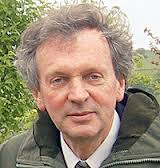MEMORY and REMEMBERING
Posted on 02 October 2012, 13:51
When we think about the worlds of spirit and the physical, we need to ask a basic question: What does it mean, to remember? In a supposed afterlife, if John or Mary remembers nothing at all from the past physical life, or any other possible previous life, can John or Mary be said, even, to exist? The evidence is that we do remember. So how do we remember? To remember we need to be conscious. And Materialist scientists, in spite of the ever-increasing understanding of the structures of the brain, cannot answer the question, how does a brain become conscious? (I discussed this problem in the last blog. It is called, “The hard problem.”) Until we solve that problem, we can’t come to agreement about memory, because we do not usually remember things when we are unconscious. With regard to the brain, it is the case that the events of consciousness, our sight and hearing, and our short term memory, for instance, are affected by damage to the relevant portions of the brain, but there is no evidence that conscious memories are stored in the specific localities: on the contrary there is some agreement that the whole brain may be involved in the act of remembering. Yet the “I”, the Self that is conscious, that remembers, is that in the brain?
If we accept the reality of communications from the so-called dead, and the various dimensions of extrasensory perception, then ultimately we must look beyond the brain in thinking about remembering. We would compare the brain to a radio or TV set, or to a computer, all dependent on signals plucked, so to speak, from the air. Damage this receiving set, and you distort or block the signals. Damage the brain, then while we are in the body, our memories in this state are less accessible.
We do remember: and there is plenty of evidence that we retain our memories in the afterlife, and ultimately recover our memories of previous lives. If we did not, it would not be meaningful to talk about the afterlife. To a large degree we are our memories. But also, each of us is a One who does the remembering. And remembering is no mechanical process like recording data on a CD.
I remember that in 1935 when I was six years old I was outside the County Council office in Waikari, a village in North Canterbury NZ: I was with my mother who was talking to a woman friend. It was a hot day and there was a smell of lilac in the air. I sniffed the air, but where was the lilac bush? Mummy, I can smell lilac, where’s the bush? My mother bent down and tried to shush me, and whispered to me that the smell came from the lady, who was wearing lilac scent. And I was embarrassed.

We all of course have almost countless equivalent stories in our past. Memories such as this have nothing much in common with mechanical recording of digital data on to a CD. It is my memory, which in turn is entangled with my emotion of embarrassment, the memory of the smell, the two women towering above little me, and how I had related to my mother since I was born. Entangled again are memories of numbers of daffodils and jonquils that my parents were growing to exhibit at flower shows, and my liking to smell each bloom in turn comparing their scents, and so on.
Remembering is never like closed circuit TV mechanically recording whatever happens in front of its lens, but is always dependent on the point of view of the experiencer, on the experiencer’s history, interests, emotions, focus of attention at the time. There can never be memory apart from a point of view. Nor can there even be conscious awareness apart from a point of view. Should we so die to self that we had full union with the One, we would die to consciousness.
Human memory has nothing in common with what we call computer memory. Computer memory is merely a collection of digital 1’s and 0’s arranged according to complicated algorithms until interpreted by a human consciousness.
Points of view, on the other hand, are not separated entities. In the physical dimension we are interacting with each other all the time and deeply affecting each other, face-to-face, through the media, in uncountable ways. “No man is an island”: we live a corporate life on a local level, and thanks to growth in communications, we live a corporate life globally.
In the dimension of Spirit, points of view remain, but we are not dealing with time and space as we understand it in the physical. As we develop spiritually we become more and more aware of the universal Spirit expressing itself through our varying points of view. St Stephen said that, in order to find out the truth about a happening, he “becomes” the person at the centre of the happening, and knows what they know. This is what often happens in the physical through telepathy and clairvoyance.
There are countless recorded cases of psychics seemingly plucking information “out of the air”, information about distant events, from the past, present, or future, regardless of whether the events are near or far, so that while memory is always from a point of view, potentially it may be that all points of view are accessible to each other, in a way parallel to the way we have access to a huge range of information regardless of space and time through the Internet or cyberspace.
When we engage in psychic research, we learn about the power of the mind both individually and corporately. In the study of psychokinesis we find that mind can move objects; with hypnosis and also with prayer, it is sometimes found that mind can heal physical diseases.
Leading quantum physicists joining the great mystics and leaders of the world’s religions, would probably agree with the idea that the universe itself is a Great Thought, and that the physical realm as we know it is the product of mind at a more fundamental dimension.
The well-known Cambridge biologist Rupert Sheldrake (below) puts forward the view that memory and habit can be a major factor in biological evolution, and even in the inanimate world what we term “natural laws” might be better termed “ingrained habits”.

Sheldrake to a degree supports Lamarckian evolution positing inheritance of acquired characteristics. For instance, should we take numbers of parrots from an environment where their accustomed food was easily accessible to an environment where they would need stronger beaks to penetrate hard surfaces, then they would develop such beaks at a rate far faster than could be accounted for by natural selection, or survival of the fittest. He posits the existence of what he calls Memory Fields where the corporate memory of things that have to be done in order to survive are recorded. This is how he regards instinct. In other memory fields is derived the varying behaviour of matter and the differing circumstances. This is how he interprets the concept of natural law. Natural laws are habits. Sheldrake presents a set of theories plausible for Idealist or Mentalist thinkers. Sheldrake backs his theories with evidence sufficiently good to win over the support of some leading physicists and biologists. Not surprisingly the physicists in question are those that see mind as an essential component in their physical theories. Those of us who accept the findings of psychic research look to such scientists for support. There are of course a much greater number of scientists who are Materialist and vehemently opposed to such thinking.
There is no space here to give a more coherent account of Sheldrake’s work, but the reader may like to explore some of the links at the end of this blog. Sheldrake is no mere theorist: he has international standing and backs up his theories with a mass of hard data.
Conventional science would study memory in the laboratory under controlled conditions, and of course some aspects of memory can be studied in this way. But if memory is regarded as a phenomenon of consciousness, explanations may elude us, elude us in the same way as does the answer to the question, what is the intrinsic nature of the energy from which the material world and indeed the universe is built? Scientists always define energy in terms of what it does, never what it is.
Similarly mind, consciousness, and memory may similarly be indefinable because they are so basic that they cannot be defined in terms of elements even more basic. Mind, consciousness and memory may simply be what we call a Given.
MORPHIC RESONANCE AND MORPHIC FIELDS
An Introduction
by Rupert Sheldrake
In the hypothesis of formative causation, discussed in detail in my books A NEW SCIENCE OF LIFE and THE PRESENCE OF THE PAST, I propose that memory is inherent in nature. Most of the so-called laws of nature are more like habits.
My interest in evolutionary habits arose when I was engaged in research in developmental biology, and was reinforced by reading Charles Darwin, for whom the habits of organisms were of central importance. As Francis Huxley has pointed out, Darwin’s most famous book could more appropriately have been entitled The Origin of Habits.
Morphic fields in biology
Over the course of fifteen years of research on plant development, I came to the conclusion that for understanding the development of plants, their morphogenesis, genes and gene products are not enough. Morphogenesis also depends on organizing fields. The same arguments apply to the development of animals. Since the 1920s many developmental biologists have proposed that biological organization depends on fields.
Read the rest of the article.
MORPHIC RESONANCE AND MORPHIC FIELDS
Afterlife Teaching From Stephen the Martyr by Michael Cocks is published by White Crow Books and available from Amazon and other bookstores.
Paperback Kindle

Next blog October 16
|